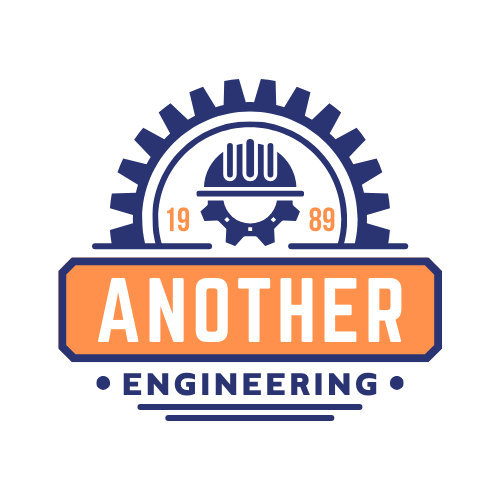Introduction
The year 2023 marks a pivotal chapter in the chemical industry’s history, as digitalization becomes the cornerstone of its evolution. “The Rise of Digitalization in the Chemical Industry in 2023” is shaping up to be more than a headline; it’s the reality as companies integrate the Industrial Internet of Things (IIoT), Artificial Intelligence (AI), and Machine Learning (ML) into the core of their operations. This shift is elevating productivity, efficiency, and safety to unprecedented levels. This digital renaissance is not merely about adopting cutting-edge technologies but is a reinvention of manufacturing principles that have stood for decades. As we delve into this technologically rich landscape, we see an industry poised to redefine its benchmarks for success in an increasingly digitalized world.

Table of Contents
Historical Context
From the analog days to the digital dawn, the chemical industry has witnessed a remarkable journey. Once characterized by manual labor and empirical decision-making, the sector is now embracing a new era where digital tools lead to more informed and precise outcomes. The initial skepticism has gradually given way to acceptance as the benefits of digitalization become increasingly clear. Through this section, we trace the evolution from conventional methods to today’s high-tech approaches that promise a more efficient and responsive industry.

The Role of IIoT in Modern Chemical Manufacturing
The integration of IIoT within the chemical industry represents a seismic shift from traditional production methods to a connected, data-rich environment. This network of sensors and devices captures and analyzes data at every stage, from raw material input to end-product quality control. The result is an intricate web of actionable insights, allowing for unprecedented control over complex chemical processes.
A prime example of IIoT’s transformative power can be witnessed in a leading agrochemical company. By integrating smart sensors into their production lines, and utilizing advanced process modeling systems like Aspen HYSYS, they have achieved a 30% uptick in output while reducing waste by half. These sensors, coupled with the simulation capabilities of Aspen HYSYS, monitor conditions in real time, from temperature to flow rates, ensuring optimal conditions are maintained for each chemical reaction. Moreover, the synergy between IIoT and Aspen HYSYS’s predictive analytics has been groundbreaking. Companies can now anticipate equipment failures before they occur, scheduling repairs during planned downtime and avoiding costly production halts.

However, the benefits extend beyond the factory floor. IIoT enables a more sustainable industry by fine-tuning resource use, minimizing energy consumption, and reducing emissions. In essence, IIoT is not just revolutionizing how the chemical industry operates; it is setting a new standard for responsible manufacturing.
Artificial Intelligence as a Catalyst for Change
Artificial Intelligence has emerged as a game-changer in the chemical industry, transforming vast data sets into a wellspring of innovation. AI’s impact is multifaceted—accelerating research and development, refining supply chain logistics, and even personalizing customer experiences.
Take, for instance, the deployment of AI in process optimization. By employing machine learning algorithms, a European chemical giant has optimized its reaction parameters, reducing time-to-market for new products by an astonishing 25%. These algorithms analyze historical performance data and current operational metrics to suggest adjustments in real-time, enhancing both yield and quality.

AI also plays a pivotal role in ensuring the safety and compliance of chemical products. By analyzing complex regulatory data, AI systems can assist companies in staying ahead of the compliance curve, adapting to new regulations swiftly and efficiently. This proactive stance on compliance not only safeguards public and environmental health but also fortifies the industry’s reputation.
Machine Learning for Predictive Analytics and Safety
Machine Learning, AI’s predictive counterpart, is reshaping the chemical industry’s approach to safety and analytics. By sifting through historical incident data and operational metrics, ML models can forecast potential disruptions, allowing for interventions that preempt workplace accidents and process deviations.
A compelling illustration of ML’s predictive prowess is seen in a petrochemical facility’s handling of catalytic processes. By training models on years of operational data, the facility now predicts catalyst degradation and adjusts processes accordingly, ensuring consistent product quality and minimizing the risk of unplanned outages.

Furthermore, ML’s role in environmental monitoring is vital. Sophisticated algorithms analyze emission data, helping companies mitigate their environmental impact. In an era where sustainability is not just a buzzword but a business imperative, ML empowers the chemical industry to exceed environmental standards and contribute positively to the global sustainability efforts.
Conclusion (The Rise of Digitalization in the Chemical Industry in 2023)
Digitalization in the chemical industry is not a fleeting trend but a foundational shift towards a future where technology and traditional chemical expertise converge. As 2023 unfolds, we witness an industry at the forefront of innovation, leveraging IIoT, AI, and ML to drive progress. The chemical sector’s digital transformation is setting benchmarks not only for itself but also for industries worldwide, signaling a new age of intelligent manufacturing.

